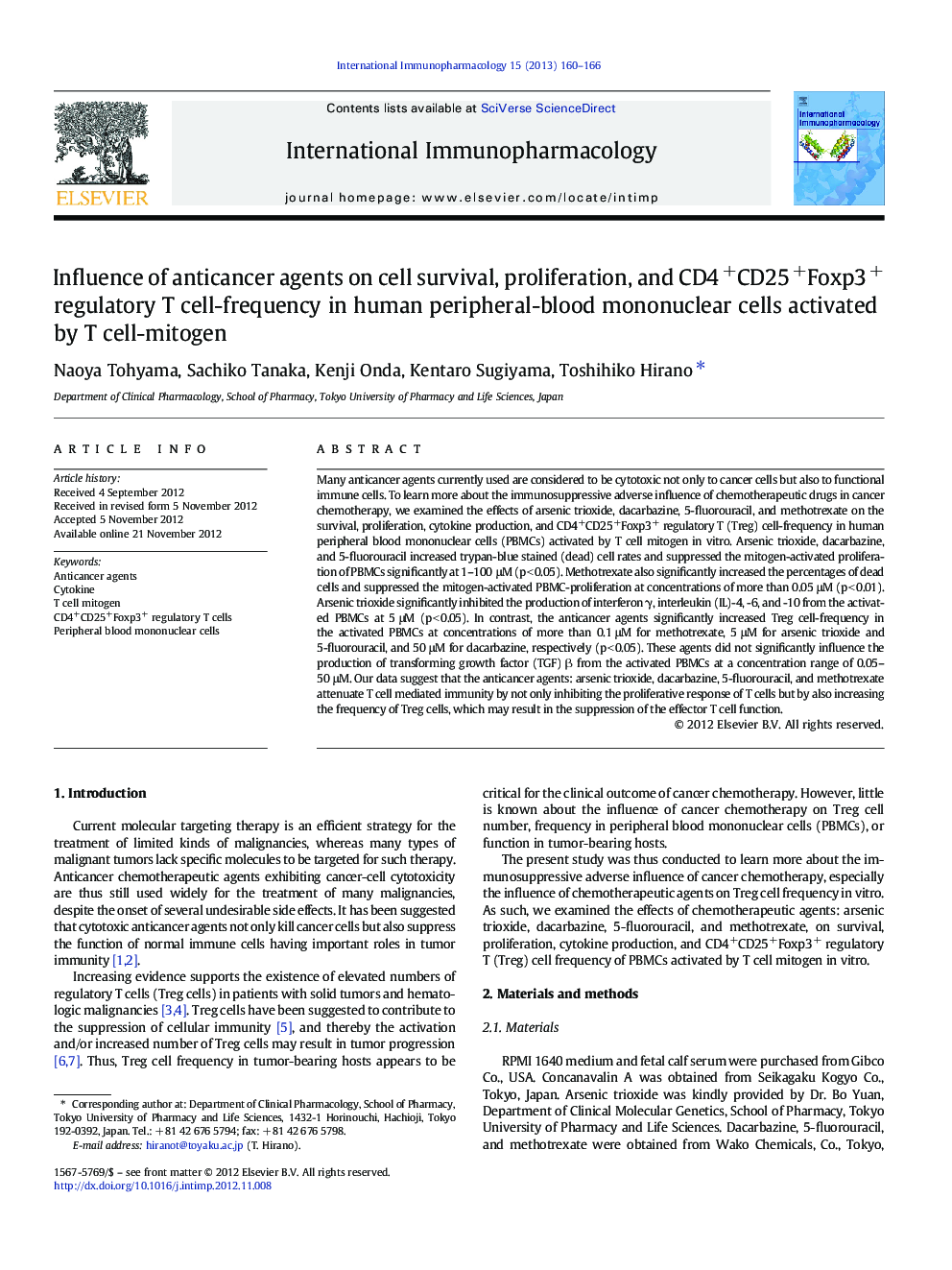| کد مقاله | کد نشریه | سال انتشار | مقاله انگلیسی | نسخه تمام متن |
|---|---|---|---|---|
| 2540940 | 1122623 | 2013 | 7 صفحه PDF | دانلود رایگان |

Many anticancer agents currently used are considered to be cytotoxic not only to cancer cells but also to functional immune cells. To learn more about the immunosuppressive adverse influence of chemotherapeutic drugs in cancer chemotherapy, we examined the effects of arsenic trioxide, dacarbazine, 5-fluorouracil, and methotrexate on the survival, proliferation, cytokine production, and CD4+CD25+Foxp3+ regulatory T (Treg) cell-frequency in human peripheral blood mononuclear cells (PBMCs) activated by T cell mitogen in vitro. Arsenic trioxide, dacarbazine, and 5-fluorouracil increased trypan-blue stained (dead) cell rates and suppressed the mitogen-activated proliferation of PBMCs significantly at 1–100 μM (p < 0.05). Methotrexate also significantly increased the percentages of dead cells and suppressed the mitogen-activated PBMC-proliferation at concentrations of more than 0.05 μM (p < 0.01). Arsenic trioxide significantly inhibited the production of interferon γ, interleukin (IL)-4, -6, and -10 from the activated PBMCs at 5 μM (p < 0.05). In contrast, the anticancer agents significantly increased Treg cell-frequency in the activated PBMCs at concentrations of more than 0.1 μM for methotrexate, 5 μM for arsenic trioxide and 5-fluorouracil, and 50 μM for dacarbazine, respectively (p < 0.05). These agents did not significantly influence the production of transforming growth factor (TGF) β from the activated PBMCs at a concentration range of 0.05–50 μM. Our data suggest that the anticancer agents: arsenic trioxide, dacarbazine, 5-fluorouracil, and methotrexate attenuate T cell mediated immunity by not only inhibiting the proliferative response of T cells but by also increasing the frequency of Treg cells, which may result in the suppression of the effector T cell function.
► Effects of arsenic trioxide, dacarbazine, 5-fluorouracyl, and methotrexate on human T lymphocytes were examined.
► The anticancer agents attenuated T cell mediated immunity by inhibiting the proliferative response of T cells.
► These agents also inhibited cytokine production and increased the frequency of CD4+CD25+Foxp3+ regulatory T cells.
Journal: International Immunopharmacology - Volume 15, Issue 1, January 2013, Pages 160–166